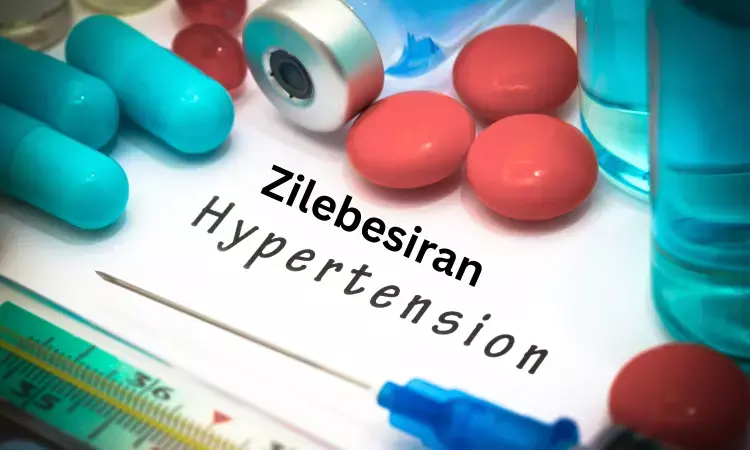- Home
- Medical news & Guidelines
- Anesthesiology
- Cardiology and CTVS
- Critical Care
- Dentistry
- Dermatology
- Diabetes and Endocrinology
- ENT
- Gastroenterology
- Medicine
- Nephrology
- Neurology
- Obstretics-Gynaecology
- Oncology
- Ophthalmology
- Orthopaedics
- Pediatrics-Neonatology
- Psychiatry
- Pulmonology
- Radiology
- Surgery
- Urology
- Laboratory Medicine
- Diet
- Nursing
- Paramedical
- Physiotherapy
- Health news
- Fact Check
- Bone Health Fact Check
- Brain Health Fact Check
- Cancer Related Fact Check
- Child Care Fact Check
- Dental and oral health fact check
- Diabetes and metabolic health fact check
- Diet and Nutrition Fact Check
- Eye and ENT Care Fact Check
- Fitness fact check
- Gut health fact check
- Heart health fact check
- Kidney health fact check
- Medical education fact check
- Men's health fact check
- Respiratory fact check
- Skin and hair care fact check
- Vaccine and Immunization fact check
- Women's health fact check
- AYUSH
- State News
- Andaman and Nicobar Islands
- Andhra Pradesh
- Arunachal Pradesh
- Assam
- Bihar
- Chandigarh
- Chattisgarh
- Dadra and Nagar Haveli
- Daman and Diu
- Delhi
- Goa
- Gujarat
- Haryana
- Himachal Pradesh
- Jammu & Kashmir
- Jharkhand
- Karnataka
- Kerala
- Ladakh
- Lakshadweep
- Madhya Pradesh
- Maharashtra
- Manipur
- Meghalaya
- Mizoram
- Nagaland
- Odisha
- Puducherry
- Punjab
- Rajasthan
- Sikkim
- Tamil Nadu
- Telangana
- Tripura
- Uttar Pradesh
- Uttrakhand
- West Bengal
- Medical Education
- Industry
Investigational RNA interference therapeutic agent Zilebesiran effective for treatment of hypertension

Angiotensinogen has previously been assumed to be a passive substrate, however recent studies reveal an inherent conformational mechanism that is critical to the cleavage and release of the angiotensin peptides and consequently to the control of blood pressure.
A recent study in The New England Journal of Medicine reveals Zilebesiran, an investigational RNA interference therapeutic agent with a prolonged duration of action, that usually inhibits hepatic angiotensinogen synthesis showed that a single subcutaneous dose of zilebesiran of 200 mg or more is effective in decreasing serum angiotensinogen levels.
Researchers conducted a phase 1 study, patients with hypertension were randomly assigned in a 2:1 ratio to receive either a single ascending subcutaneous dose of zilebesiran (10, 25, 50, 100, 200, 400, or 800 mg) or placebo and were followed for 24 weeks (Part A). Part B assessed the effect of the 800-mg dose of zilebesiran on blood pressure under low- or high-salt diet conditions, and Part E the effect of that dose when coadministered with irbesartan. End points included safety, pharmacokinetic and pharmacodynamic characteristics, and the change from baseline in systolic and diastolic blood pressure, as measured by 24-hour ambulatory blood-pressure monitoring.
The key findings of the study are
• A total of 107 patients were enrolled, 5 had mild, transient injection-site reactions. There were no reports of hypotension, hyperkalemia, or worsening of renal function resulting in medical intervention.
• In Part A, patients receiving zilebesiran had decreases in serum angiotensinogen levels that were correlated with the administered dose (r=−0.56 at week 8; 95% confidence interval, −0.69 to −0.39).
• Single doses of zilebesiran (≥200 mg) were associated with decreases in systolic blood pressure (>10 mm Hg) and diastolic blood pressure (>5 mm Hg) by week 8; these changes were consistent throughout the diurnal cycle and were sustained at 24 weeks.
• Results from Parts B and E were consistent with attenuation of the effect on blood pressure by a high-salt diet and with an augmented effect through coadministration with irbesartan, respectively.
The researchers concluded that “Dose-dependent decreases in serum angiotensinogen levels and 24-hour ambulatory blood pressure were sustained for up to 24 weeks after a single subcutaneous dose of zilebesiran of 200 mg or more; mild injection-site reactions were observed.”
Reference: Desai AS, et al "Zilebesiran, an RNA interference therapeutic agent for hypertension" N Engl J Med 2023; DOI: 10.1056/NEJMoa2208391.
MSc. Neuroscience
Niveditha Subramani a MSc. Neuroscience (Faculty of Medicine) graduate from University of Madras, Chennai. Ambitious in Neuro research having worked in motor diseases and neuron apoptosis is interested in more of new upcoming research and their advancement in field of medicine. She has an engrossed skill towards writing and her roles at Medical dialogue include Sr. Content writer. Her news covers new discoveries and updates in field of medicine. She can be reached at editorial@medicaldialogues.in
Dr Kamal Kant Kohli-MBBS, DTCD- a chest specialist with more than 30 years of practice and a flair for writing clinical articles, Dr Kamal Kant Kohli joined Medical Dialogues as a Chief Editor of Medical News. Besides writing articles, as an editor, he proofreads and verifies all the medical content published on Medical Dialogues including those coming from journals, studies,medical conferences,guidelines etc. Email: drkohli@medicaldialogues.in. Contact no. 011-43720751


